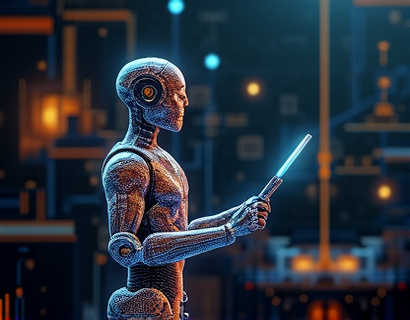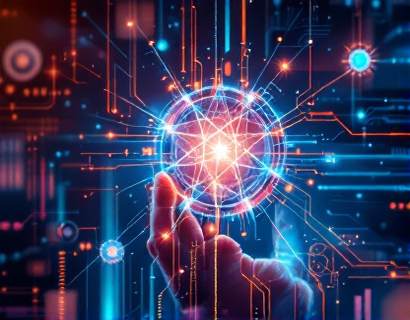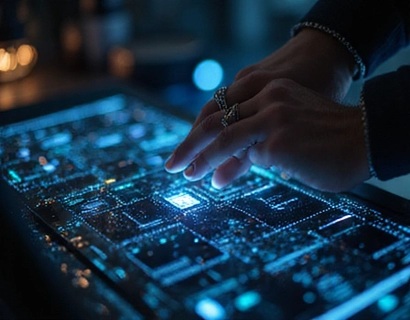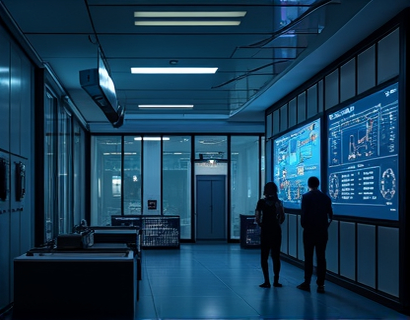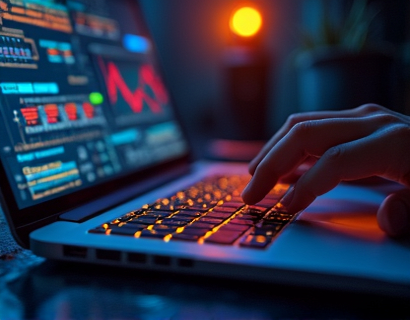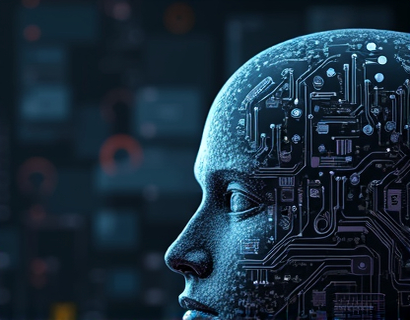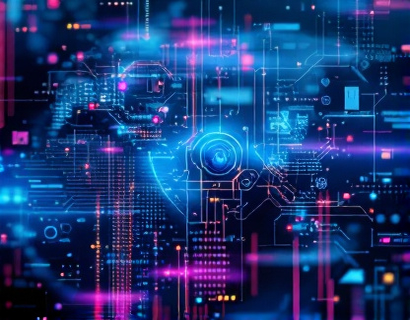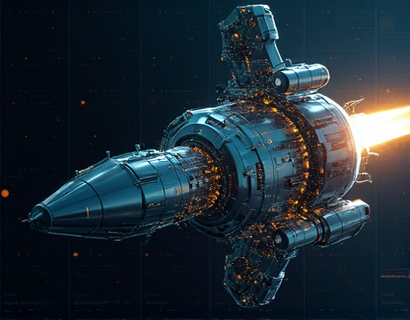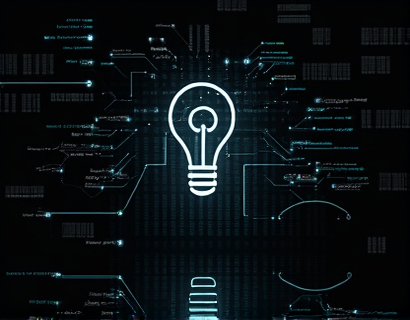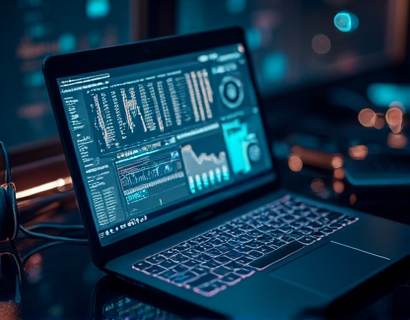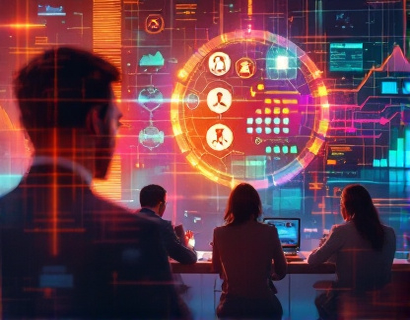AI and Crypto: Pioneering Enhanced Digital Ecosystems for Innovators
The intersection of artificial intelligence (AI) and cryptocurrency is giving rise to a new era of digital ecosystems, where innovators can leverage advanced technologies to create more secure, efficient, and user-friendly applications and services. This fusion is not just a technological advancement but a strategic shift that is redefining how tech-savvy individuals and businesses interact with digital platforms. In this article, we will delve into the ways AI and cryptocurrency are transforming the digital landscape, offering enhanced solutions and a deeper insight into the future of digital connectivity.
The integration of AI into the crypto space is multifaceted, impacting various aspects from security and transaction processing to user experience and market analysis. AI algorithms can analyze vast amounts of data to identify patterns and predict market trends, providing users with valuable insights for informed decision-making. This capability is particularly useful in the volatile crypto market, where timing and accuracy can mean the difference between profit and loss.
One of the primary areas where AI and crypto converge is in enhancing security. Cryptocurrencies, by their nature, are decentralized and rely on blockchain technology for transparency and security. However, the complexity of these systems makes them vulnerable to various threats, including hacking and fraud. AI can play a crucial role in fortifying these systems by detecting anomalies and potential security breaches in real-time. Machine learning models can be trained to recognize unusual patterns of activity and alert users or administrators, thereby preventing potential losses.
Beyond security, AI is revolutionizing the way transactions are processed in the crypto ecosystem. Traditional blockchain transactions can be slow and energy-intensive, especially during peak times. AI-driven solutions can optimize transaction processing by predicting network congestion and dynamically adjusting transaction parameters to ensure faster and more efficient processing. This not only improves user experience but also reduces the environmental impact of crypto operations.
User experience is another critical area where AI and crypto intersect. Crypto platforms often have a steep learning curve, making them inaccessible to the general public. AI-powered chatbots and virtual assistants can guide users through complex processes, providing personalized support and education. These tools can answer common questions, explain technical concepts in simpler terms, and even assist with wallet management and transaction execution. By simplifying the user interface and experience, AI helps demystify crypto and makes it more approachable for newcomers.
The role of AI in market analysis and trading strategies cannot be overstated. Advanced AI algorithms can process and analyze vast amounts of data from various sources, including social media, news feeds, and historical price data. This comprehensive analysis enables the development of sophisticated trading bots that can execute trades based on real-time data and predefined strategies. These bots can operate 24/7, capitalizing on market opportunities that human traders might miss. For individual investors, this means access to professional-level trading tools and strategies, leveling the playing field in the crypto market.
Moreover, AI can enhance the liquidity of crypto markets. Liquidity is crucial for the smooth functioning of any financial market, and AI can help increase it by matching buyers and sellers more efficiently. AI algorithms can predict price movements and adjust order books accordingly, ensuring that there are always willing buyers and sellers. This increased liquidity reduces slippage and improves the overall trading experience, making crypto more attractive to a broader audience.
Another significant application of AI in the crypto ecosystem is in the realm of decentralized finance (DeFi). DeFi platforms aim to provide financial services without traditional intermediaries, leveraging smart contracts and blockchain technology. AI can enhance DeFi by optimizing smart contracts, reducing the risk of bugs and vulnerabilities. AI can also improve risk management in DeFi protocols by continuously monitoring and adjusting parameters based on market conditions, ensuring the stability and reliability of these platforms.
The synergy between AI and crypto extends to the development of new financial instruments and products. AI-driven analytics can identify emerging trends and opportunities, enabling the creation of innovative crypto-based assets and derivatives. These new products can cater to a wide range of investment strategies and risk profiles, further expanding the crypto ecosystem. For instance, AI can help in the design of stablecoins that maintain a stable value by dynamically adjusting their supply based on market demand and other factors.
In addition to financial applications, AI and crypto are also transforming other industries through decentralized solutions. Supply chain management, for example, can benefit from AI-enhanced blockchain systems that provide real-time tracking and verification of goods. This not only increases transparency but also reduces fraud and errors. AI can analyze data from various points in the supply chain, predicting potential bottlenecks and optimizing logistics. This integration of AI and crypto ensures a more efficient, secure, and trustworthy supply chain.
The potential for AI and crypto to enhance digital ecosystems is not limited to specific industries. In the realm of content creation and distribution, AI can help manage and monetize digital assets on the blockchain. AI algorithms can analyze content popularity and audience engagement, recommending optimal distribution strategies and even generating new content based on trending topics. This synergy can empower creators to reach wider audiences and monetize their work more effectively, all while ensuring fair compensation through blockchain-based systems.
Furthermore, AI can improve the governance and decision-making processes within crypto communities. Decentralized autonomous organizations (DAOs) can leverage AI to enhance transparency, accountability, and efficiency. AI can analyze community feedback, propose governance changes, and even automate certain administrative tasks. This reduces the burden on human administrators and ensures that decisions are made based on data-driven insights, fostering a more democratic and responsive governance model.
As the integration of AI and crypto continues to evolve, the future of digital connectivity looks promising. Innovators have the opportunity to build on this foundation, creating more robust, secure, and user-friendly digital platforms. The combination of AI's analytical power and crypto's decentralized nature opens up endless possibilities for innovation. Whether it's enhancing security, optimizing transactions, improving user experience, or transforming industries, the potential is vast.
For tech-savvy innovators, embracing this fusion of AI and crypto is not just an option but a necessity. By staying at the forefront of these technological advancements, they can develop solutions that not only meet current needs but also anticipate future trends. The digital ecosystem is evolving rapidly, and those who harness the power of AI and crypto will be well-positioned to lead the way.
In conclusion, the convergence of AI and crypto is reshaping the digital landscape, offering enhanced solutions and a deeper understanding of the future of digital connectivity. As we continue to explore and leverage these technologies, the possibilities for innovation and growth are limitless. The journey ahead promises exciting developments that will transform the way we interact with digital platforms and services.





